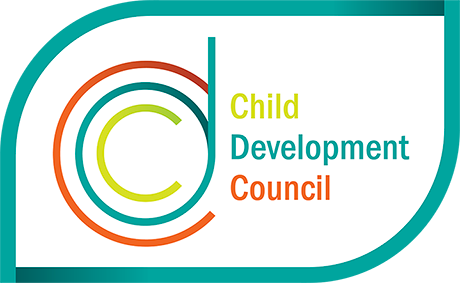CYP Matters
Respect and listening
It still hurts: Appearance-based teasing when you’re a child
The research is clear; appearance-based teasing is a key risk factor for a child to develop body dissatisfaction which, in turn, can negatively impact their life outcomes, including their mental health, career, and relationships. More >
How young people are learning about relationships, sex and sexuality
Research carried out by Cardiff University and University College London, co-produced with a dedicated Young Person’s Advisory Group, used creative methods to listen to the views and experiences of young people from across the UK to find out how they are learning about relationships, sex and sexuality. More >
Enjoying and achieving
How is your school using its nature play spaces?
A growing body of evidence shows how nature-based play and learning can deliver significant benefits for children’s health, wellbeing and development. This study found 63% of public primary schools in South Australia have a nature play space, with a further 25% either planning or building one. More >
Interim Report – Royal Commission into Early Childhood Education and Care
There is an opportunity for South Australia to build an early child development system that uses the best of today’s knowledge, while learning and refining into the future. Also recognised is the vital role between early childhood services, families and communities for connecting families to supports that go far beyond early learning. More >
Participation
Softball school team from APY Lands blitzes field to claim state championship glory
A group of Year 5 and 6 junior softballers from across the remote Anangu Pitjantjatjara Yankunytjatjara (APY) Lands have blitzed the South Australian schools’ carnival division three field, going through the three-day, nine-match tournament undefeated, despite never having competed together before. More >
Game on for collaborative learning
Holding a conversation, working in a group, giving constructive feedback and dealing with conflict are vital interpersonal skills that contribute to an empowered and connected life. While some people seem to acquire these skills effortlessly, others facing social challenges can require additional support, including autistic children. More >
Prepared for adult life
Apprentices to be screened for reading, writing and maths skills
Apprentice ‘tradies’ will be tested for reading, maths and digital skills before they start work, and given remedial lessons to boost their basic skills under reform of the training system for apprentices, and employers will be encouraged to provide childcare or flexible shifts to allow more women to work in male-dominated industries. More >
Health and wellbeing
Link between climate change, youth mental health concerns highlighted by new national survey
A new study has found that one in four Australians aged 15 to 19 years were ‘very or extremely concerned’ about climate change. Nearly two in five of those people also experienced high psychological distress. More >
Health benefits for children and teenagers in cities are ‘shrinking’ worldwide
Cities can provide a multitude of opportunities for better education, nutrition, sports and recreation, and healthcare, however the advantages for children and adolescents’ healthy growth and development as a result of growing up in a city environment are shrinking across much of the world. More >
Teen urges others not to try vaping, ahead of Federal Government crackdown on black market
At 15, Angus should be enjoying the Easter school holidays. Instead, he is battling withdrawal symptoms as he tries to quit a vaping habit that has taken over his life. He wants to share the impact that vaping has had on him physically and mentally to deter other young people from picking up the habit. More >
New urban design guide shows city leaders how to prioritise children’s needs
As the need becomes ever more pressing for child-friendly urban designers and city policymakers to flex their creative muscles, a new guide has been published to provide ideas and inspiration. More >
Place Matters: What Surrounds Us Shapes Us
A wide range of conditions in the places where children live, grow, play and learn can get ‘under the skin’ and affect their developing brains and other biological systems. This infographic visually breaks down how the environments we create shape the foundations of early childhood development. More >
Safe and nurtured
Family support protects trans young people – but their families need support too
At just 22, actress, writer and advocate Georgie Stone OAM has been recognised for her tireless work to reduce discrimination and remove systemic barriers for young trans people. More >
Life Without Barriers will transfer responsibility of fostered Aboriginal children to Indigenous-led services
Responsibility for the foster care of hundreds of Aboriginal children will be transferred to Aboriginal-led services, to ensure decision-making about their care is more inclusive of culture and made by Aboriginal people. More >
Disrupted Childhood: The cost of persuasive design (2023)
The digital environment promises creativity and knowledge, however its dependence on persuasive design makes it a challenging space for children and young people and can increase risk, limit creativity and stifle development. More >
Thousands of young people experiencing homelessness in Australia, as services call for national plan
Both locally and nationally, too many children and young people don’t have a safe place to live on any given night and organisations working to end youth homelessness are concerned about the current state of the problem. More >
UNICEF and INTERPOL in cooperation agreement to address child exploitation and abuse
Under a new agreement, these two organisations will work together to support national law enforcement agencies across the world to improve how countries respond to sexual exploitation and abuse crimes against children. More >
Victoria to raise the age of criminal responsibility to 12, youth advocates push for 14
Victoria will raise the age of criminal responsibility from 10 to 12, a decision advocates say ignores international best practices and will not improve child welfare. More >

